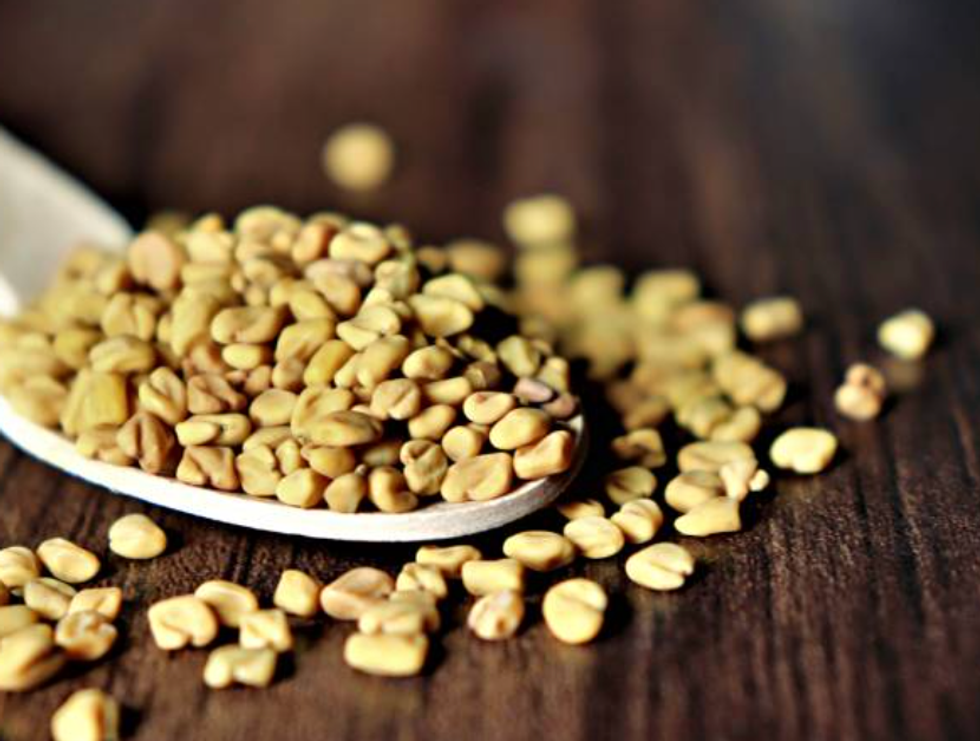Type 2 diabetics take note. Adding fenugreek seeds to your diet can significantly reduce high blood sugar.
The discovery gives hope to more than five million people living with the disease in the UK.
High blood sugar levels come from poor insulin production. The complication of diabetes can damage the eyes, kidneys, nerves, heart and blood vessels. This can lead to permanent vision problems, nerve damage in the hands and feet, and cardiovascular disease.
Several studies have shown that fenugreek seeds can compensate for low insulin production by slowing the rise in blood sugar that follows a meal.
The seeds are extracted from the fenugreek plant, a clover-like herb native to the Mediterranean, western Asia, and southern Europe. They are used in cooking, medicine and cosmetics and have many health benefits.

Several studies have shown that fenugreek seeds can compensate for low insulin production.
Getty Images
In a study published in Medicine, Agricultural and Food Sciences, 25 patients were orally fed a control diet consisting of milled rice, boiled rice, and whole wheat (chapati). An experimental diet consisting of boiled rice with fenugreek seed powder and chapati with fenugreek seeds. powder administered for four consecutive days.
Blood was collected at intervals of 15 minutes up to 120 minutes. The glycemic index – a scale that ranks foods based on how quickly they cause blood sugar levels to rise – was calculated for both the control and experimental diets.
What did the researchers discover?
Fenugreek rice and fenugreek wheat significantly reduced blood sugar levels compared to rice and wheat taken orally, respectively.
Additionally, the average glycemic index was significantly lower when fenugreek was administered 15 minutes before the meal than when fenugreek was administered with the meal.
“Fenugreek has a lowering effect on the glycemic index when added to rice and wheat-based diets, due to a delay in gastric emptying and increased intestinal transit time,” they said. concluded the researchers.
They added: “Adding fenugreek to the diet of diabetic patients 15 minutes before the meal results in a significant reduction in the glycemic index and is beneficial for diabetic patients for long-term control of their blood sugar and prevention complications linked to hyperglycemia. .”
Other studies have confirmed this effect. A study on the role of fenugreek seeds in diabetes found that the seeds improve insulin sensitivity.
However, some studies have not shown the same benefits, and the quality and heterogeneity of studies remains a concern. Further studies are needed to evaluate the effectiveness of fenugreek in type 2 diabetes.
LATEST DEVELOPMENTS IN HEALTH

You should eat a wide range of foods to lower blood sugar, says NHS
GETTY
General Tips for Lowering Blood Sugar
There’s nothing you can’t eat if you have type 2 diabetes, but you will need to limit certain foods.
According to the NHS, you should:
- Eat a wide range of foods, including fruits, vegetables, and some starchy foods like pasta, potatoes, and rice.
- Keep sugar, fat and salt to a minimum
- Avoid skipping meals if you are taking medications that can cause hypos
Exercising helps lower your blood sugar levels. You should aim for at least 2.5 hours of activity per week, notes the NHS.
And don’t forget to watch out for symptoms of diabetes, like feeling more thirsty and urinating more than usual.